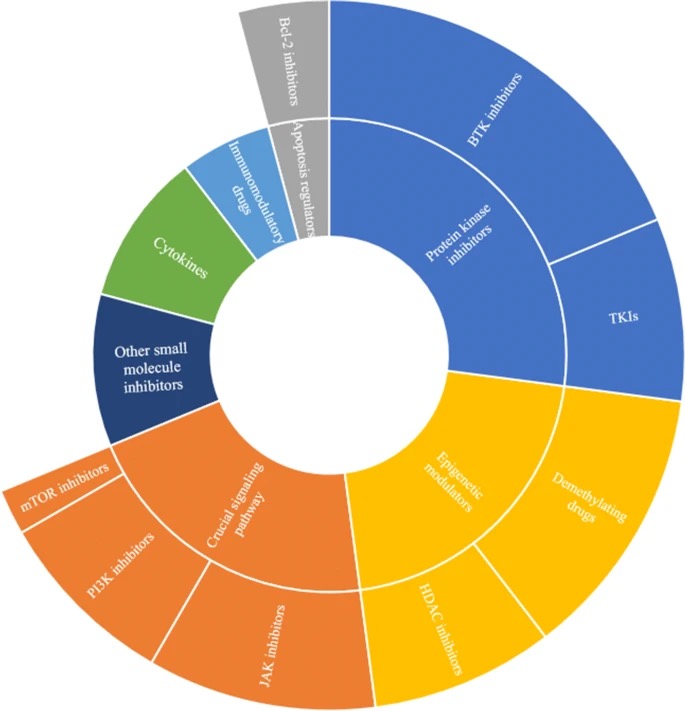All products and services are For Research Use Only and CANNOT be used in the treatment or diagnosis of disease.
In vitro CAR-T manufacturing, small molecule-mediated regulation of T cell differentiation can optimize the therapeutic effect of cellular immunotherapy. Studies have shown that many small molecules induce changes in protein and gene expression levels and affect cell proliferation and viability of T cell subsets. Creative Biolabs offers a wide range of small-molecule compounds that help enhance the therapeutic properties of CAR-T cells.
 Fig.1 Different small-molecule compounds.1
Fig.1 Different small-molecule compounds.1
Our Small-Molecule Compound Products
Creative Biolabs offers a full range of products and services for your CAR T-cell therapy. If you are interested in our products, or have any questions in the field of CAR, please feel free to contact us. Below are some CAR small-molecule compound products:
References
 NEWSLETTER
NEWSLETTER
The latest newsletter to introduce the latest breaking information, our site updates, field and other scientific news, important events, and insights from industry leaders
LEARN MORE NEWSLETTER NEW SOLUTION
NEW SOLUTION
CellRapeutics™ In Vivo Cell Engineering: One-stop in vivo T/B/NK cell and macrophage engineering services covering vectors construction to function verification.
LEARN MORE SOLUTION NOVEL TECHNOLOGY
NOVEL TECHNOLOGY
Silence™ CAR-T Cell: A novel platform to enhance CAR-T cell immunotherapy by combining RNAi technology to suppress genes that may impede CAR functionality.
LEARN MORE NOVEL TECHNOLOGY NEW SOLUTION
NEW SOLUTION
Canine CAR-T Therapy Development: From early target discovery, CAR design and construction, cell culture, and transfection, to in vitro and in vivo function validation.
LEARN MORE SOLUTION

